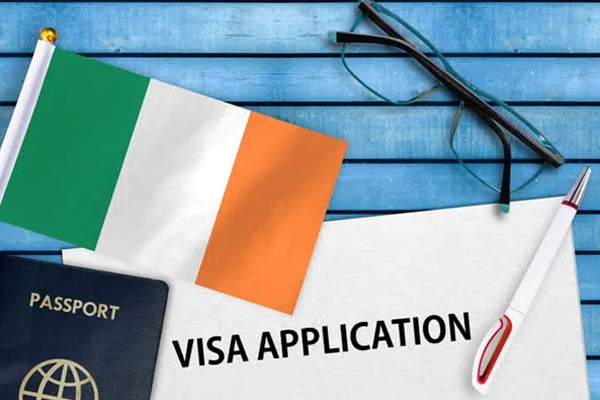
Planning To Study in Ireland:
Ireland is an island nation in Europe’s western region. After Great Britain, it is the third biggest island on the continent. Additionally, it is renowned for its lovely, verdant scenery, enthralling history, and hospitable populace. Foreign students who are interested in studying overseas need to be aware of the advantages of studying in Ireland. Due to Ireland’s attraction to worldwide corporations, particularly well-known organizations, there are excellent career chances for graduates from other countries. One of the many benefits of Study in Ireland is the availability of internship opportunities, which is a fantastic prospect to gain practical work experience and will come in very handy when applying for jobs. International students studying in Ireland can expect a high standard of living, harmony, and personal growth.
Why Study in Ireland?
Here are some brief details regarding Study Abroad in Ireland: Ireland is home to superb universities offering top-notch instruction and first-rate facilities. Ireland’s universities provide specific programs focused on the workplace; these courses are approvingly specialized. Ireland is the second-biggest software exporter in the world. Considered the Silicon Valley of Europe, Ireland’s government is concentrating on establishing it as a centre for information technology. In the fields of data science and analytics, networking, cloud computing, cyber security, and artificial intelligence, Ireland is well-known worldwide. Ireland is one of the great countries to study as it is a stable country with an expanding economy, which offers great returns on investment.

- Top-notch Universities
- Academic Excellence
- Diverse Courses
- Affordable Education
- Career Prospects
- Warm and Welcoming Environment
- Culture Diversity

Document Requirement to Start Ireland Student Visa Process:
- Valid Passport
- Valid Academic Documentation.
- IELTS/PTE/TOFEL/Duolingo.
- Updated CV/Resume
- Work Experience letter (If Any)
- LOR (Letter of Recommendation)
- SOP (Statement of Purpose)
- Financial Documents (Saving Account/ FD/Loan letter)
- Rejection Letter (If Any)
Cost of Studying in Ireland
Sr.No. |
Program |
Average Tuition Fee |
| 1 | Undergraduate | 10,000-25,000 Euros/Year |
| 2 | Postgraduate | 9,000-12,000 Euros/Year |
Cost of living in Ireland:
International students must understand the Living Cost of Study in Ireland to demonstrate and save enough money before deciding to study there. The location of your University in Ireland, the kind of housing you select, and your lifestyle will all have an impact on your living costs. In Ireland, the average monthly cost of lodging is between €400 and €800.
The following extra costs will affect an international student’s overall cost of living in Ireland: visa application; travel insurance; medical insurance; travel and baggage to and from Ireland; and police registration. Apart from this, miscellaneous expenses of Cell phone, Television, and Accommodation Deposit depending on location and needs.
According to the Irish embassy’s requirements for a study visa, the average total cost of living while studying in Ireland is €9,000 and €12,000, although depending on their way of living, students can lower it.

Get in touch with our knowledgeable advisors for additional individualized information, and they’ll assist you in studying in Ireland on a budget.
Intakes in Ireland:
The available 3 intakes in Ireland are:
Sr.No |
Intake |
Term |
| 1 | Major | Fall (September) |
| 2 | Minor-1 | Spring (January) |
| 3 | Minor-2 | Summer (March/May) |

Top Subject Areas for Students:
- Computer Science
- Business Analytics
- Artificial Intelligence
- Cyber security
- Mechanical Engineering
- Biotechnology
- Pharmaceutical Science
- Accounting
- Business Administration
Application Process at Focus Education:
Services we provide to our students
- Detailed Profiling
- Program Selection
- University/Institutes Shortlisting
- Assistance on SOP/LORs/Admission Essays
- Application Filling
- Follow-up with Institutions for Admit Letters
- Interview Preparation
- Visa Application
- Guidance on Finance

Language tests accepted in Ireland:
- IELTS
- PTE
- TOEFL
- Duolingo

Scholarships to Study in Ireland:
International students can apply for a plethora of scholarships and student grants in Ireland. Studies that achieve exceptional academic standing are granted merit prizes and exemptions of educational fees. Graduates with exceptional grades in their previous academic presentations are motivated to study in Ireland by scholarship opportunities. International students can Study in Ireland through scholarships offered by a number of organizations, colleges, universities, and the Government of Ireland Colleges. Scholarships are given to students in undergraduate, graduate, or research programs in a range of subject areas when they meet the organization’s eligibility requirements.
Job Opportunities in Ireland:
With the Irish GDP expected to rise by over 6% after growing at a rate of 5.5%, there will be more job prospects for international students. The past few years have seen a significant increase in the number of job opportunities in Ireland for overseas students. Ireland’s service industry is booming as a result of the presence of high-paying employment following studies in the nation by global IT behemoths like Google, Facebook, Twitter, and others. Currently popular: the information technology industry is experiencing a boom in jobs in Ireland. Additionally, there has been a noticeable increase in the need for graduates from the travel and hospitality sector. After studying in Ireland, salaries often vary between EUR 50,000 to EUR 60,000 annually, based on a number of variables including your degree, course preference, and skill set.

In-Demand Professions:
- Linux Dev/Ops Engineer
- Business Analyst
- Data Analyst
- Health & Safety Officer
- Logistics Manager
- Supply Chain Manager
- Procurement Officer
- Accountant
- Qualified Engineer
- Pharma Sales Territory
- Manager
- Electrical Engineer
- Software Engineer
List of Institutions:
- University College Dublin (UCD)
- Trinity College Dublin (TCD)
- NUI Galway (NUIG)
- Cork Institute of Technology (CIT)
- Dublin City University (DCU)
- Maynooth University (MU)
- University College Cork
- Griffith College Dublin
- National College of Ireland
- Dundalk Institute of Technology
- Dublin Business School
- South East Technological University
- Munster Technological University
- University of Limerick
- Technological University Dublin
- University of Galway
- University of Limerick
FAQs Related to Ireland's Education:
No, Irish and English are the two official languages of Ireland. But English is far more common. Very few individuals speak Irish as their native tongue outside of rural regions. For this reason, nearly all courses in higher education are taught only in English. So, you do not need to learn Irish; just keep working on your English.
Four major popular cities of Ireland are Dublin, Galway, Cork and Limerick.
The interview is yet another last stage following the application. Attending an interview is not required to get a Study Visa for Ireland. Depending on your application and supporting documentation, the requirements may change. The primary purpose of the Irish student visa interview is to ensure that you will follow the guidelines specified in your visa.
Ireland accepts various English proficiency tests such as IELTS, PTE, TOEFL, and Duolingo.
Each university has a different application cost. The cost of application at Irish Institutions varies depending on the institution and the degree you’re interested in. One needs to visit the institution’s website to find out how much the application costs. However, certain institutions in Ireland don’t charge an application fee.
- It is necessary for you to demonstrate that you have enough money to live in Ireland while pursuing your studies, independent of part-time work.
- Proof showing you have the money (€10,000-€12,000) to cover your expenses for your stay. Proof that on top of the course expenses for each year you continue your studies, you or a sponsor have access to at least €10,000 each year.
- Proof of your private health insurance policy.
- A bank statement for the six months before your trip is required. Moreover, it must be authentic or have the bank’s stamp if downloaded from the internet; it must display your name and current address. Furthermore, it must indicate a good credit balance. Large lodgments need to be justified.
- You can apply having a study gap if you can justify the time difference between your final academic year and the application.
- There are several justifications for taking a study break.
- You can provide a variety of explanations for your study break in your SOP, including trips, health problems, or business endeavors.
- To get the checker’s attention, though, you need to write a strong, opinionated, and convincing SOP.
In the world, it is among the top 3 safest nations, according to the Global Peace Index 2023. Irish are cheerful, hospitable people who are always willing to help out or share a tale. This makes being an international student in Ireland a very fulfilling experience.
- Irish universities accept Indian students even in the absence of a GRE score, placing them on par with US universities.
- A strong academic background and results on one of the following examinations are required for Indian students: IELTS, TOEFL, PTE, and Duolingo.
- All Irish colleges do not require GMAT results, some may request that the students who undertake an MBA program to furnish GMAT.
No, it is not.
